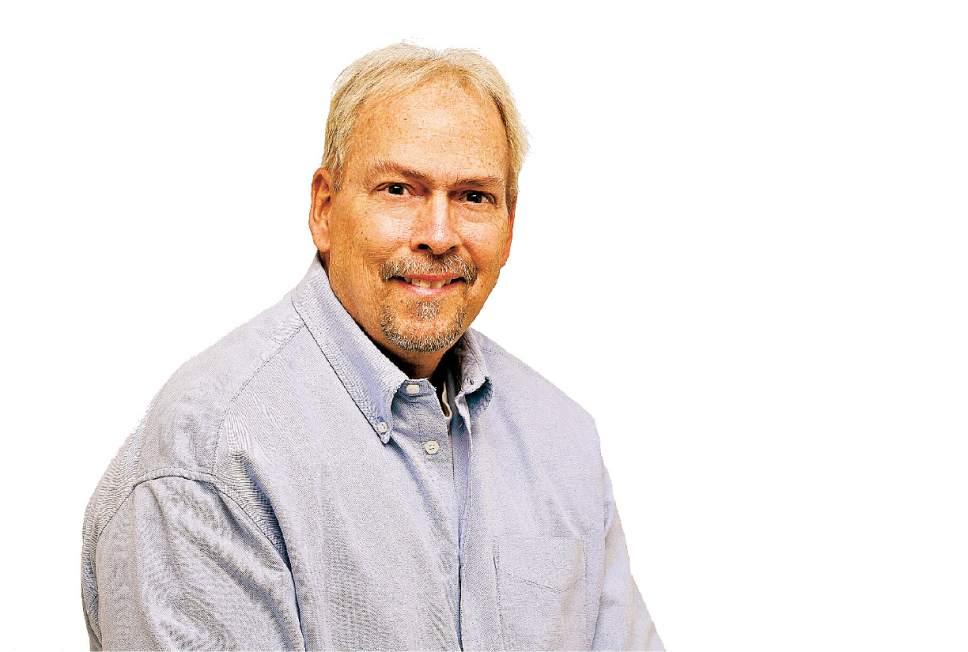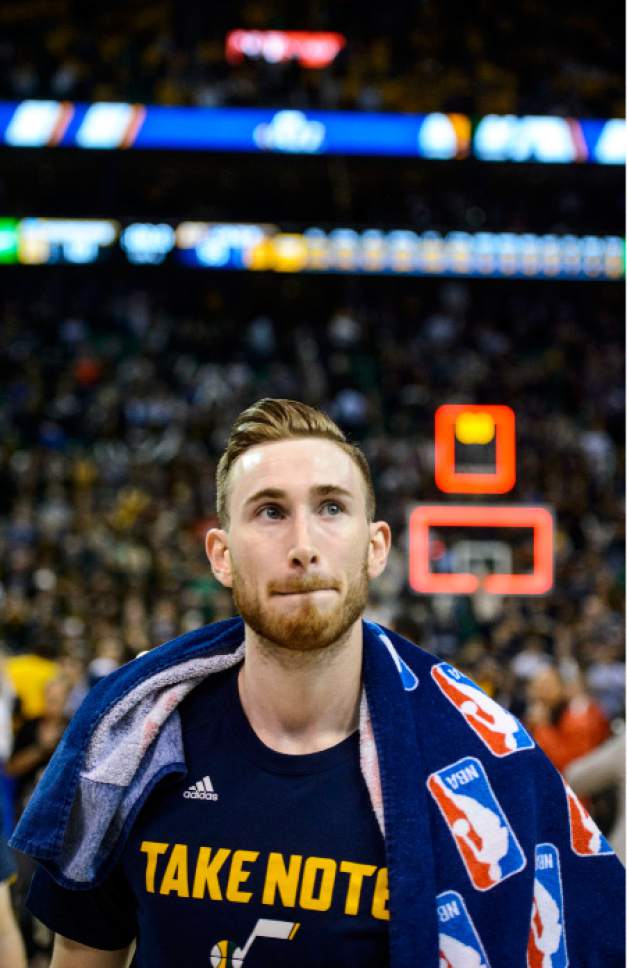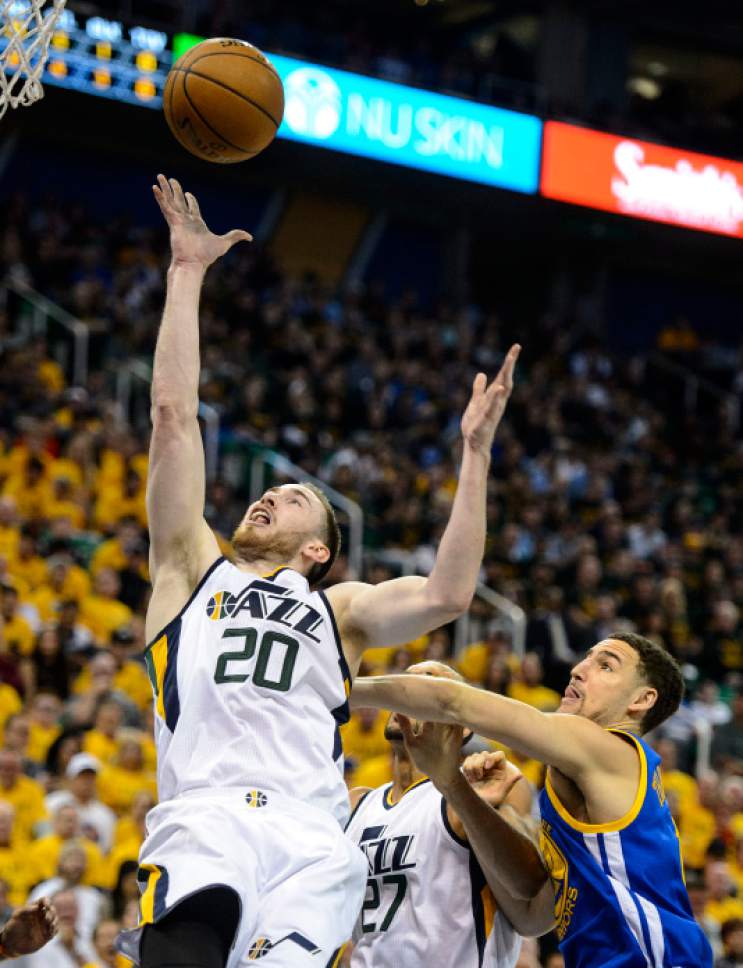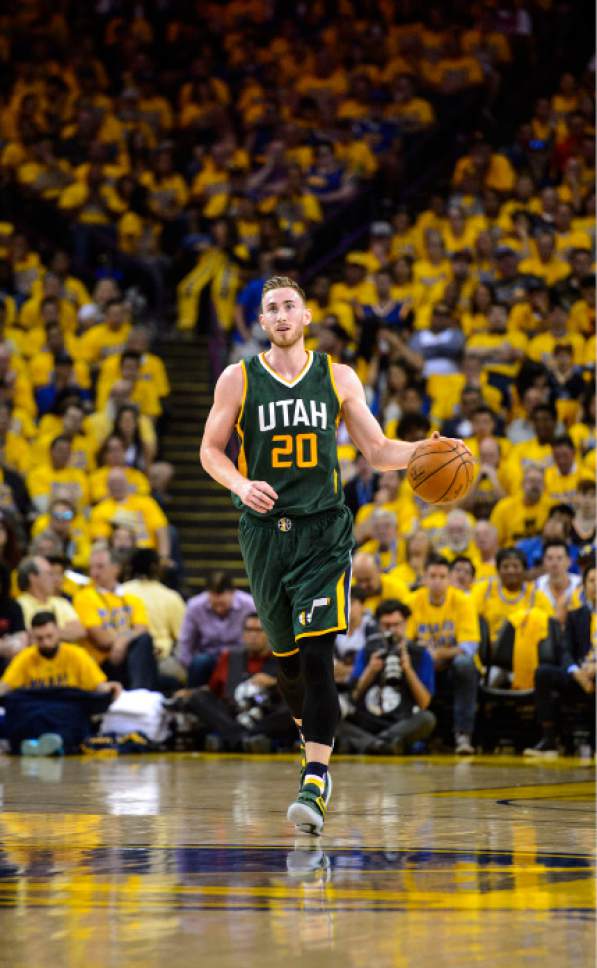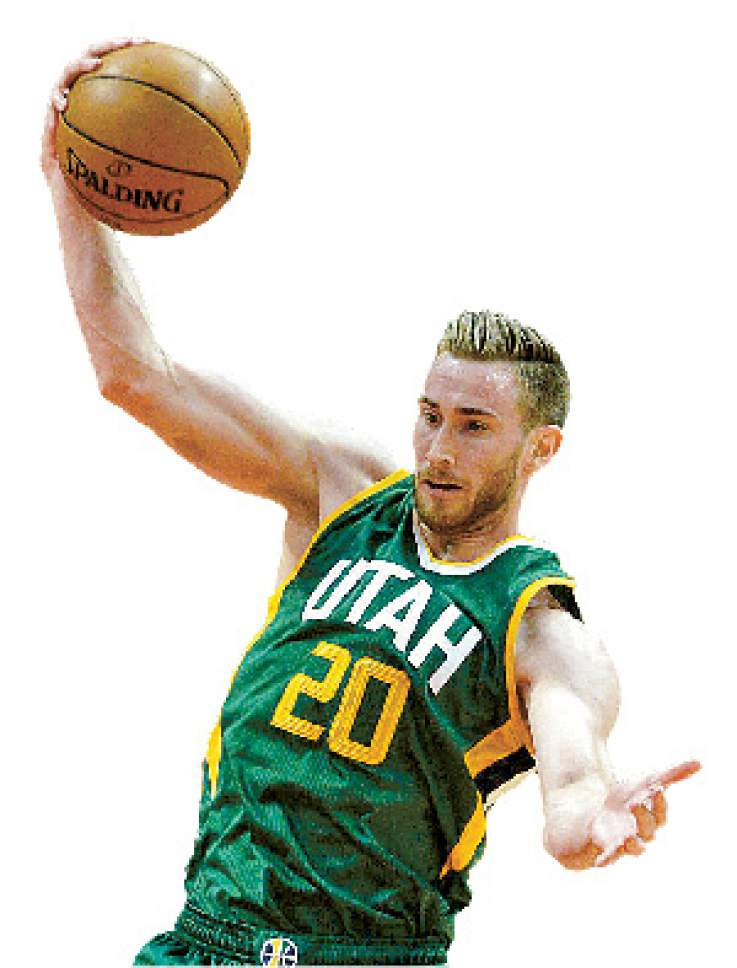This is an archived article that was published on sltrib.com in 2017, and information in the article may be outdated. It is provided only for personal research purposes and may not be reprinted.
As everyone around here waits for and wonders about what Gordon Hayward will do next week, as the official part of his free agency commences, there's some good news for Jazz fans, either way.
First, let's address those either ways.
The information Hayward is considering, tossing in the air as though he were a cook at Benihana's, is not particularly complicated. It's the alignment of his priorities with the advantages of the various scenarios that gets more complex. And that's what makes this decision so personal. Only he can do that aligning. Only he can guess as to which path will lead to his own version of happiness.
If we boil the choices down to, say, Boston and Salt Lake City, there are bonuses in each direction.
In your mind's eye, you can see Hayward channeling Tevye from "Fiddler on the Roof," as he wanders down the streets of his existence, saying to himself, "On the one hand …. On the other hand. …"
Boston is a great sports town, a terrific, though imperfect city by most definitions, a place where the Celtics have become one of the top two pro basketball franchises in the world. They have history and a legacy second to none. That history/legacy brings with it all kinds of cool things — playing in the same uniform that Russell, Cousy, Bird, Parish, McHale, Pierce and so many others, wore, for the club with a trophy case as expansive as any.
The downside to all of that is this: If you don't haul in the Larry O'Brien Trophy, then you have failed. Ask any of the guys who played for the Celtics but had no championship to show for it. They are mostly forgotten, dismissed as something a couple of levels down, regardless of their own individual greatness.
They do not normally build statues in Boston for players who don't win titles. And the judgments cast upon those who never reach that pinnacle can be harsh. If you wear the shamrock and no rings, you are automatically compromised, disregarded as substandard.
If you have off nights, you suffer through the original pain, then suffer a whole lot more the next morning, where you get to read and hear about it again, aggressively, measured as everything is against what Bird's teams did.
As for the opportunity in front of Hayward now were he to become a Celtic, he'd get to play for his college coach, Brad Stevens, a definite plus. He also would get his shots only when Isaiah Thomas decides to offer them up to him. Danny Ainge and Stevens might tell him otherwise as a part of their pitch, but …
But.
Thomas is a ball-dominant point guard who likes to hoist it a lot. Hayward has to determine if it's in his best interests to play with and acquiesce to that kind of initiator of the offense. That will be true no matter how many high draft picks the Celtics have, or what other free agents they sign. There are unknowns regarding the way Hayward would fit in.
Utah, by contrast, is the place where Hayward became what he is. There may have been some rough stretches along the way, some folks who Hayward may have thought doubted him. Sources say there are segments within the Jazz infrastructure that, at times, disappointed Hayward. That's the baggage that comes by way of having a past with a place. Almost never do all things go swimmingly in a competitive pursuit.
Still, Hayward has played for Quin Snyder longer than he played for Stevens. It can be argued that he's made more progress under Snyder than any ascent he had in college. Snyder is every bit as bright as Stevens. The Jazz coach has challenged Hayward and rewarded him by building his entire team around him. He most definitely is the man here, even as Rudy Gobert has become more valuable. It's Hayward's team.
The whole idea of running from the challenge of competing against the Warriors in the West is objectionable, or it should be, to anyone as good as Hayward. The idea that he should run off to Boston because the East is easier to beat is an argument for the weak-minded.
Hayward can make more money in Utah, be a bigger part of his team, and finish what he started, without the mystery of whatever might happen playing in Boston, which could be every bit as negative on Hayward's game as it is positive.
But it's up to Hayward to do the tossing, the aligning, to do the guessing. Nobody else.
If he decides to leave — and this is the positive part — there is an attitude that has grown up under Jazz general manager Dennis Lindsey which greatly diverges from doubts of the past. It is this: If Hayward goes, there are other free agents who may not have Hayward's specific game, but who would be good fits with the Jazz. The old Derek Harper thing that has hovered over Utah, that it cannot sign big-name free agents, is antiquated thinking, the way Lindsey figures it.
He keeps saying the Jazz have a great story to tell, a story that offers a fantastic opportunity for a great player, because he believes it. He's a relative newcomer here, and has no such negative burden to carry with him that difference-makers — young, rich 26-year-old stars — won't come to a smaller market. Maybe that thought doesn't stick in his brain because he worked — and won — in San Antonio.
The names that have been whispered about whom the Jazz will pursue if Hayward is a no-go are ambitious ones. Lindsey seems to be grabbing the idea that it's better for him to shoot for the stars and get the stars than for him to be weighed down by the drag that he can't succeed. If he doesn't get them, it's better to shoot for the stars and land in the trees than to shoot for the trees and land in the mud.
Whatever happens with Hayward, there could be other routes to good things for the Jazz. Lindsey thinks so, so maybe everyone else should buy in, until it's proven that they should sell.
GORDON MONSON hosts "The Big Show" with Spence Checketts weekdays from 3-7 p.m. on 97.5 FM and 1280 AM. Twitter: @GordonMonson.


